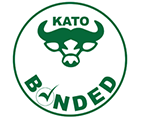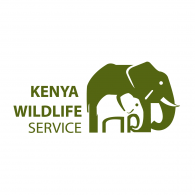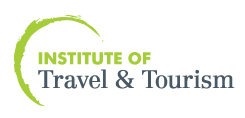The Scott Travel Group | +254 732 866 623 / +254 739 911 397 | enquiries@stg.travel
The Scott Travel Group | +254 732 866 623 / +254 739 911 397 enquiries@stg.travel
We are COVID-19 Compliant
The Scott Travel Group | +254 732 866 623 / +254 739 911 397 | enquiries@stg.travel
The Scott Travel Group | +254 732 866 623 / +254 739 911 397 enquiries@stg.travel
We are COVID-19 Compliant

All you need to know before visiting Kenya
Location:
Eastern Africa, bordering the Indian Ocean, between Somalia and Tanzania.
Land Boundaries:
Ethiopia 861 km, Somalia 682 km, Sudan 232 km, Tanzania 769 km, Uganda 933 km.
Geography:
Size 582,650 sq km, slightly more than twice the size of Nevada, USA. Low plains rise to central highlands bisected by the Great Rift Valley with a fertile plateau in the west. Its lowest point of elevation is the Indian Ocean; its highest point of elevation is Mt Kenya which stands at 5,199m. The climate varies from tropical along the coast to arid in the interior. The Kenyan Highlands comprise one of the most successful agricultural production regions in Africa; glaciers are found on Mount Kenya, Africa’s second highest peak, and a unique physiography supports abundant and varied wildlife of scientific and economic value.
Languages:
Kiswahil is the lingua franca while English is the official language. In addition most tribes have their own dialects/indigenous languages.
Ethnic Groups:
Kikuyu 22%, Luhya 14%, Luo 13%, Kalenjin 12%, Kamba 11%, Kisii 6%, Meru 6%, other African 15%, non-African (Asian, European, and Arab) 1%.
Religion:
Protestant 45%, Roman Catholic 33%, indigenous beliefs 10%, Muslim 10%, other 2%. Note: a large majority of Kenyans are Christian, but estimates for the percentage of the population that adheres to Islam or indigenous beliefs vary widely.
BAGGAGE
Baggage space on most safaris is limited to one medium sized suitcase or hold-all per person, plus hand baggage (private safaris where there are less than 5 people in the vehicle are not subject to this restriction). Visitors to Treetops and the Ark are asked to take overnight bags only. Suitcases can be left at the base hotels. Hotels will generally store baggage at no extra cost, and baggage may also be stored at the Scott Travel offices. A baggage weight restriction of 15kgs per person applies on air safaris, and where very small aircraft are used, this restriction my be reduced to 10kgs.
CURRENCY
Hard currencies can be exchanged in cash or travellers cheques at banks all over the country, at forex bureaus in Nairobi and other major towns and in most large hotels and lodges. US Dollars and Sterling Pounds are acceptable and will cause the least delay. As a norm, always enquire as to what commission and charges will be deducted prior to the transaction. Banks are open from 08:30 hrs to 15:00 hrs or 16.00hrs on weekdays and from 09:00 hrs to 11:00 hrs on Saturdays. The best / most competitive rates of exchange can be found at the Jomo Kenyatta International Airport in Nairobi.
CREDIT CARDS
VISA, MASTERCARD & AMERICAN EXPRESS are widely accepted for tourist services. Occasionally there is a small charge on top of the price as establishments are charged a fixed percentage of their transactions. There are ATM machines in all major towns and cities where money can be withdrawn.
HEALTH
Since rules concerning disease prevention vary from time to time, information should be sought from the Kenyan High Commission, Tourist Office or from any airline flying scheduled services into Kenya from your country of residence prior to traveling. Malaria is endemic to most parts of Kenya and intending visitors should start taking anti-malarial tablets before departure and should continue taking them for the prescribed period of time after their return home. Insect repellants should be utilized after dusk and suitable cover-up clothes should be worn in the evenings.
FLYING DOCTORS SOCIETY
Membership of the Flying Doctors Society is strongly recommended. In the event of accident or sickness while on safari, the society will fly / evacuate patients by air ambulance to Nairobi for admittance to hospital. The current cost for a 1 month membership is US $ 30.00 per person and this can be organized by Scott Travel prior to your arrival in Kenya.
DRINKING WATER
Please do not consume any tap water during your trip. Hotels and lodges generally provide a thermos flask in your rooms with safe drinking water. In addition, bottled mineral water is available at all supermarkets, lodges and hotels.
SECURITY
As in any other destination, normal precautions should be taken. Visitors are advised not to leave cash and valuables in their hotel rooms, but to ensure that use is made of safety deposit boxes which are available at a minimal cost at all hotels and lodges. Visitors should never carry large sums in cash and women should keep a tight grip on their handbags in crowded or busy streets just as they would anwhere else in the world.
PHOTOGRAPHY
Taking photographs at airports, near military installations, of policemen, the president, the national flag, the State House, state properties and prisoners, is completely prohibited. Prior to taking photographs of local people, permission should be obtained and a fixed price agreed upon. Please seek the assistance of your driver / guide regarding this matter.
VOLTAGE
Both mains electricity and generated supply in lodges and hotels provides 240 volts AC 50 cycles. Most hotels and some game lodges provide shaving points with 110v 50 cycles. Sockets are usually 3 pin and are of the “square” (British) variety.
TIPPING & PORTERAGE
Although hotels and lodges include a service charge, it is customary to tip porters and waiters (US $ 2 – 5 per service rendered is acceptable, and safari drivers / guides (US $ 8 – 15 per person per day is acceptable).
POST & TELEPHONES
Keeping in touch by email, telephone and mail is generally easy. Direct overseas dialing and email facilities are possible / available from major centers and increasingly from remote places such as game lodges. “Call home” bureaus are in Nairobi as are cyber cafes for email and internet access. Like most public facilities, post office hours are from 08:00 hrs to 17:00 hrs Mondays to Fridays, and on Saturdays until noon.
PASSPORTS AND VISAS
Visas can either be obtained from the Kenyan Embassy in your country of residence, or at customs upon arrival in the country. They currently cost $25 per person and can be paid in dollars or the Kenyan shilling equivalent on arrival.
ZANZIBAR
Yellow fever certificates are not required for Kenya but are essential for entry into Tanzania and in particular the island of Zanzibar.
CLIMATE
Kenya and Tanzania are at the same altitude as the equator, and as a result, we have a very tropical climate. Coastal areas are hot and humid, the Central Province is semi-desert with hot days and cold nights, the Mount Kenya and Aberdares region of Kenya is much cooler and warm clothing will be required especially in the mornings and at night.
Recommended Miscellaneous List









Enjoy an unforgettable, hassle-free travel experience with Scott Travel. Tell us where you want to travel, and our team will guide you.